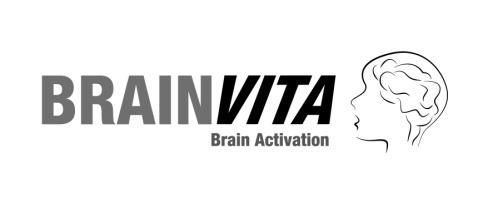Alzheimer's disease
Alzheimer's disease is a brain disorder that gets worse over time. It's characterized by changes in the brain that lead to deposits of certain proteins. Alzheimer's disease causes the brain to shrink and brain cells to eventually die. Alzheimer's disease is the most common cause of dementia — a gradual decline in memory, thinking, behavior and social skills. These changes affect a person's ability to function.
About 6.5 million people in the United States age 65 and older live with Alzheimer's disease. Among them, more than 70% are 75 years old and older. Of the about 55 million people worldwide with dementia, 60% to 70% are estimated to have Alzheimer's disease. The early signs of the disease include forgetting recent events or conversations. Over time, it progresses to serious memory problems and loss of the ability to perform everyday tasks.
Medicines may improve or slow the progression of symptoms. Programs and services can help support people with the disease and their caregivers. There is no treatment that cures Alzheimer's disease. In advanced stages, severe loss of brain function can cause dehydration, malnutrition or infection. These complications can result in death.
Symptoms
Memory loss is the key symptom of Alzheimer's disease. Early signs include difficulty remembering recent events or conversations. But memory gets worse and other symptoms develop as the disease progresses. At first, someone with the disease may be aware of having trouble remembering things and thinking clearly. As symptoms get worse, a family member or friend may be more likely to notice the issues.
Brain changes associated with Alzheimer's disease lead to growing trouble with:
Memory
Everyone has memory lapses at times, but the memory loss associated with Alzheimer's disease persists and gets worse. Over time, memory loss affects the ability to function at work or at home.
People with Alzheimer's disease may:
• Repeat statements and questions over and over.
• Forget conversations, appointments or events.
• Misplace items, often putting them in places that don't make sense.
• Get lost in places they used to know well.
• Eventually forget the names of family members and everyday objects.
• Have trouble finding the right words for objects, expressing thoughts or taking part in conversations.
Thinking and reasoning
Alzheimer's disease causes difficulty concentrating and thinking, especially about abstract concepts such as numbers. Doing more than one task at once is especially difficult. It may be challenging to manage finances, balance checkbooks and pay bills on time. Eventually, a person with Alzheimer's disease may be unable to recognize and deal with numbers.
Planning and performing familiar tasks
Routine activities that require completing steps in order become a struggle. This may include planning and cooking a meal or playing a favorite game. Eventually, people with advanced Alzheimer's disease forget how to do basic tasks such as dressing and bathing.
Changes in personality and behavior
Brain changes that occur in Alzheimer's disease can affect moods and behaviors. Problems may include the following:
• Depression.
• Loss of interest in activities.
• Social withdrawal.
• Mood swings.
• Distrust in others.
• Anger or aggression.
• Changes in sleeping habits.
• Wandering.
• Loss of inhibitions.
• Delusions, such as believing something has been stolen.
Preserved skills
Despite major changes to memory and skills, people with Alzheimer's disease are able to hold on to some skills even as symptoms get worse. Preserved skills may include reading or listening to books, telling stories, sharing memories, singing, listening to music, dancing, drawing, or doing crafts.
These skills may be preserved longer because they're controlled by parts of the brain affected later in the course of the disease.
When to see a doctor
A number of conditions can result in memory loss or other dementia symptoms. Some of those conditions can be treated. If you are concerned about your memory or other thinking skills, talk to your health care professional. If you are concerned about thinking skills you observe in a family member or friend, talk about your concerns and ask about going together to talk to a health care professional.
阿茲海默症大腦會受損嗎?認識10大阿茲海默症前兆
罹患阿茲海默症的患者,大腦多半會受到程度不一的損傷,且難以完全根治,因此,最好的方法還是依循「及早發現,及早治療」的準則,在出現病症前兆時就積極採取保健或醫療措施以延緩或改善病程。以下整理出10大阿茲海默症的相關症狀,提供大家自我評估,以便及早發現警訊。
阿茲海默症前兆 1:記憶力衰退
經常會忘記自己近期做過的事情或說過的話,但對多年前的事情卻記憶猶新,比如會記得5年前孩子上大學時的畢業典禮日期,但卻不記得前天晚上曾和孩子通過電話。
阿茲海默症前兆 2:對時間、空間的判讀能力變差
會逐漸失去對於時間的概念,像是與家人説要「出門半小時」,卻3、4個小時後才回家;也會迷失方向感,無法順利到達指定的地點。
阿茲海默症前兆 3:書寫、口語表達能力下降
在書寫與口語表達上的能力大幅下降,且經常重複敘說一樣的事情或句子。例如想要説「手錶」時,可能會說成「手上的時鐘」,想說「消防員」卻只能說出「滅火的人」等較不精確的詞彙。
阿茲海默症前兆 4:無法處理原先熟悉的事務
原先如果是一名律師,患病後便無法準確背誦法條、進行清楚的答辯活動;或本來是專業水電工,卻忘記怎麼修理水管、處理管線問題,甚至會突然忘記如何使用微波爐、遙控器等家電用品。
阿茲海默症前兆 5:邏輯思考能力變差
對於抽象事物的思考能力變差,往往需要對方再三解釋才能瞭解特定議題或概念,此外,遇到問題時的邏輯思辨能力也逐漸變差,變得更容易相信詐騙集團或陌生人。
阿茲海默症前兆 6:經常將物品亂放且無法找回
會將物品放置在不該出現的地方,像是將襪子放入冰箱或把青菜收進櫃子,且事後無法找回自己放置的物品,失去追溯過去記憶的能力。
阿茲海默症前兆 7:對於圖像、標示的理解力減弱
無法快速理解簡易的告示牌、路標圖像等標示,或需要經過詳細解說才能理解簡單的交通號誌規則。
阿茲海默症前兆 8:個性改變、情緒起伏大
原先沉著冷靜的個性可能變得暴躁好動,或原本是能言善道的人卻變得害羞內向,遇到事件的反應變大,且情緒起伏更明顯,容易因為小事而喜怒無常。
阿茲海默症前兆 9:失去與人交流的興趣
對於需要與人交流的社交場合失去興趣、活動力下降,變得不想出門,原本感興趣的事物也失去熱情,對大部分的事物皆提不起勁。
阿茲海默症前兆 10:無法按照計畫行動
無法按照原先設定好的計畫行事,例如看著熟悉的食譜做菜卻會漏掉幾個步驟、依照使用說明書組裝衣櫃卻還是出錯,且無法集中精神,時常在執行計畫時出現注意力渙散的情形。





